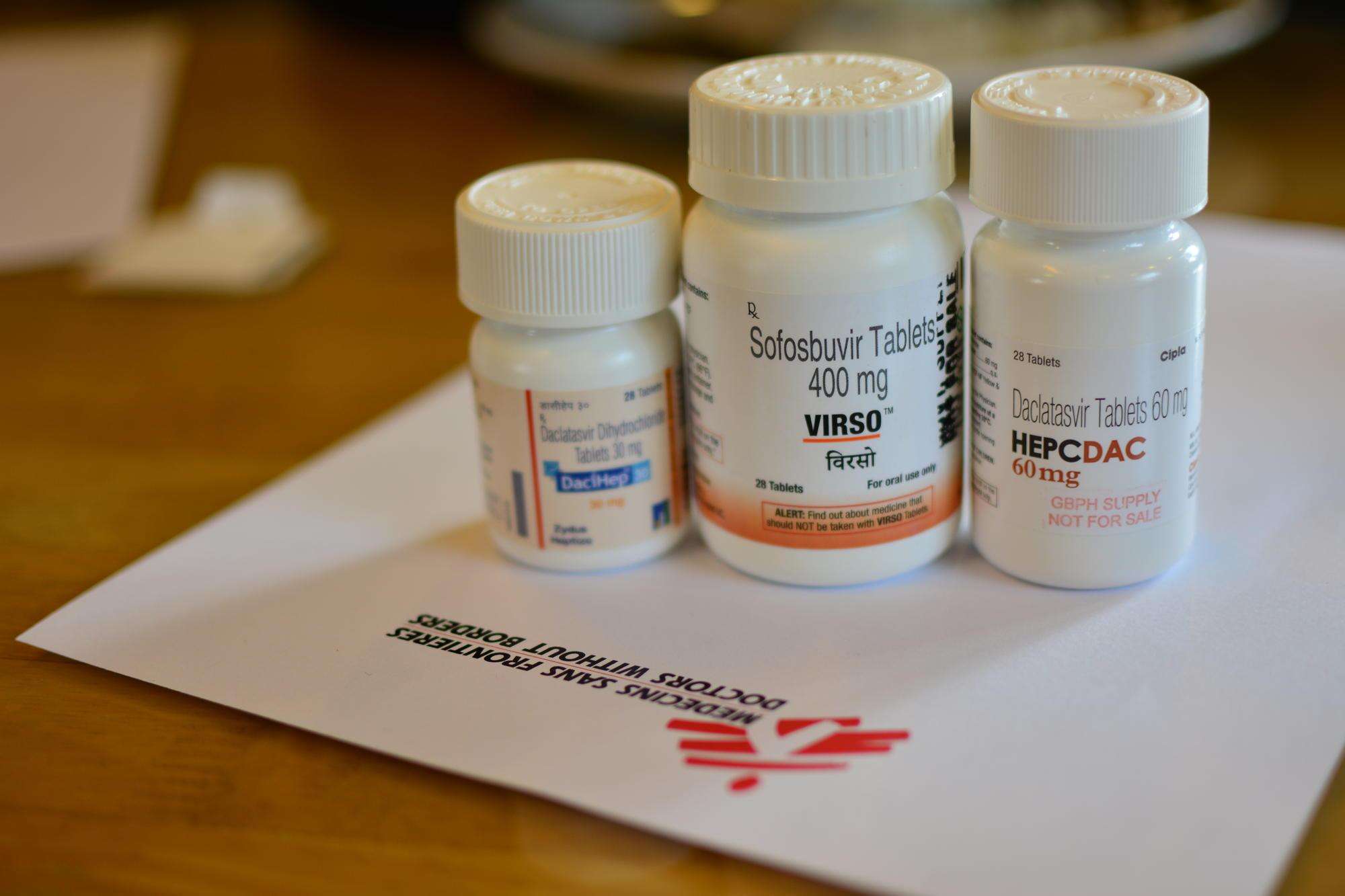Patent blocks affordable generic versions of hepatitis C drug from being made in China, keeping cure out of reach for millions of people across the world
NEW YORK/GENEVA, JUNE 19, 2018—The international medical humanitarian organization Doctors Without Borders/Médecins Sans Frontières (MSF) filed a legal patent challenge today at China’s State Intellectual Property Office (SIPO), requesting the invalidation of the patent it granted to US pharmaceutical corporation Gilead Sciences in 2012 for the oral hepatitis C medicine velpatasvir. This unmerited patent means this lifesaving medicine could remain priced out of reach for several more years, leaving millions of people to unnecessarily go without in China and abroad.
Velpatasvir, a direct-acting antiviral (DAA), is one of the key medicines used in combination with another DAA—sofosbuvir—for the oral treatment of all six major genotypes of hepatitis C virus. Its effectiveness as a cure with few side effects makes it a crucial drug in the fight against hepatitis C. Sofosbuvir is the base of all hepatitis C DAA treatments and must always be used in combination with another DAA like velpatasvir to work.
“Without access to affordable DAAs, people with hepatitis C in China are still forced to take an older, injected drug called interferon, which has low cure rates and causes people severe side effects like psychosis,” said Gaëlle Krikorian, head of policy for MSF’s Access Campaign. “Unlocking unmerited patents on velpatasvir and sofosbuvir will open up access to affordable generic versions of this crucial treatment.”
The fixed-dose combination treatment of velpatasvir and sofosbuvir should be an important treatment option in national hepatitis C programs, yet access to these medicines remains limited because prices remain unnecessarily high. While the prices charged for this combination are exorbitant in many countries where patent barriers exist, they are rapidly falling in countries where generic versions are available. For example, Gilead launched the sofosbuvir/velpatasvir combination at a price of $51,000 for a 12-week treatment course in the United Kingdom, whereas the same treatment course is available for as low as $286 in India from generic manufacturers. In China, this combination was registered in May 2018, but Gilead has not yet announced its price.
China is widely known as being the world’s largest supplier of active pharmaceutical ingredients (API), or raw material, used to make many kinds of medicines; if patents were not a barrier, China could become an important supplier—both domestically and internationally—for both the raw materials and finished products of oral hepatitis C drugs.
“Chinese manufacturers are global suppliers of pharmaceutical raw materials, yet are unable to manufacture key hepatitis C medicines for people in China or other countries around the world because of unmerited patents,” said Jessica Burry, HIV and hepatitis C pharmacist for MSF’s Access Campaign. “Leveraging China’s generic production capacity could significantly increase competition and make these breakthrough medicines more affordable and available globally.”
MSF is arguing Gilead does not deserve a patent because, based on technical grounds, the product does not merit one under China's Patents Law. The company has applied for multiple patents in China for its hepatitis C medicines. Some of these are being opposed by a generic pharmaceutical company and non-profit organizations based on similar grounds of being unmerited under China’s Patents Law. In addition to the current filing for invalidation of the velpatasvir patent, MSF filed a patent challenge in December against Gilead’s patent application for the sofosbuvir/velpatasvir combination.
“Ending unmerited patent monopolies for oral hepatitis C drugs in China would help nearly nine million people in the country with hepatitis C access desperately needed treatment, and another 59 million untreated people worldwide,” Krikorian said.
Gilead’s patent applications and granted patents on sofosbuvir, velpatasvir, and their combinations with other DAAs have been challenged in many other countries, including India, the United States, Brazil, Ukraine, Russia, and in the European Union. These efforts have paved the way for increased competition among generic producers, which has brought prices down and improved access to treatment for people.
MSF treats people with hepatitis C in 11 countries, including Belarus, Ukraine, Pakistan, Uzbekistan, India, Myanmar, Cambodia, Uganda, Kenya, Mozambique, and South Africa. Since 2015, MSF has provided DAA treatment to over 6,000 people with hepatitis C. Of those who have completed treatment to date, the overall cure rate is 94.9 percent.




